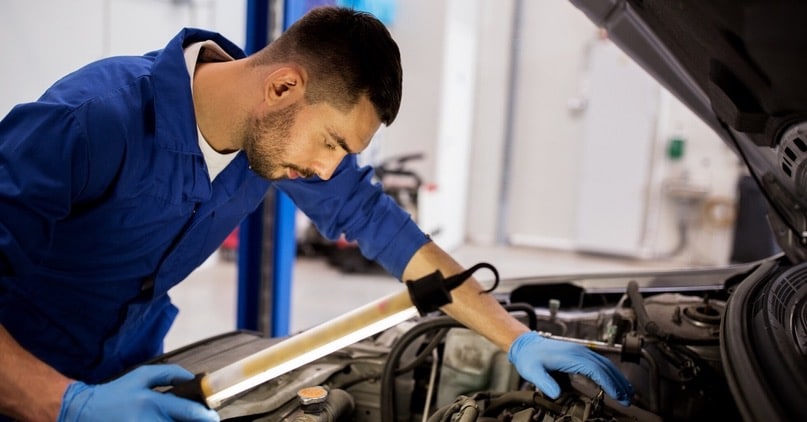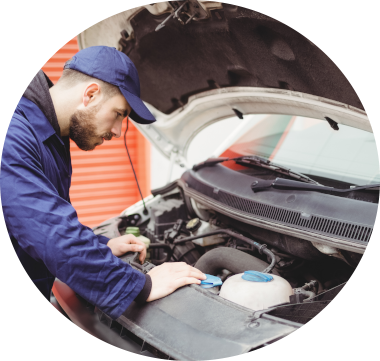All Categories
Featured
Your car is a vital component of your every day life, and taking great care of it ensures that it offers you accurately for many years to find. While modern-day cars are designed to be durable, neglecting proper upkeep can cause unneeded break downs and expensive repair work. Here's just how you can keep your car running longer and in peak problem.
- Abide By Regular Upkeep. The foundation of a lasting auto is regular maintenance. Follow your maker's suggested maintenance schedule, which can typically be discovered in your cars and truck's owner's guidebook. Regular jobs like oil adjustments, tire turnings, and brake checks protect against damage and maintain your vehicle doing efficiently.
Neglecting oil changes is just one of the quickest means to damage your engine. Clean oil guarantees correct lubrication and prevents overheating. Depending upon your vehicle and driving habits, oil changes are generally needed every 3,000 to 5,000 miles or as specified by the producer.
- Check and Restore Fluids. Your vehicle depends on a number of fluids to operate smoothly. These include engine oil, transmission fluid, coolant, brake fluid, and power guiding fluid. Low or dirty liquids can bring about engine getting too hot, slipping equipments, and brake failing.
Make it a routine to check liquid levels consistently. If you notice a substantial decrease in liquid levels, it might show a leakage that requires prompt interest. Keeping fluids tidy and at the best degrees guarantees your cars and truck runs effectively and avoids costly repair services.
- Keep an Eye on Your Tires. Tire upkeep is vital for both safety and performance. Poorly filled with air tires can decrease fuel performance, create uneven wear, and boost the risk of blowouts. Inspect your tire pressure monthly and guarantee it matches the producer's referrals.
Revolving your tires every 5,000 to 7,500 miles advertises even wear and expands their life-span. In addition, examine your tires for any indicators of damage, such as cuts, protrudes, or low tread deepness, and replace them when necessary.
- Change Worn Parts on Time. Disregarding damaged components can result in larger issues in the future. For example, falling short to change a used timing belt can cause engine failing. Worn brake pads can damage blades, leading to costly repair work.
Be aggressive about changing components such as ignition system, filters, and belts as per the manufacturer's guidelines. Utilizing top notch replacement components guarantees far better performance and durability.
- Exercise Gentle Driving. The method you drive significantly influences the life expectancy of your vehicle. Hostile driving practices, such as fast acceleration, abrupt stopping, and tough cornering, put added tension on the engine, brakes, and tires.
Rather, take on smooth driving methods. Speed up progressively, preserve a consistent rate, and brake delicately whenever feasible. This lowers wear and tear on your car's parts and improves gas efficiency.

- Shield Your Car's Outside. Maintaining your auto tidy isn't just regarding appearances-- it's concerning protecting against damage. Dust, road salt, and grime can create deterioration and rust, particularly in the undercarriage. Routine cleaning, specifically throughout winter months or after driving on salty roads, is vital.
Waxing your automobile every few months supplies a protective layer versus environmental damage. Additionally, park your automobile in a garage or make use of a vehicle cover to shield it from severe weather condition and UV rays, which can discolor the paint and damage the interior.
- Do Not Neglect Warning Signs. Control panel warning lights are your car's way of telling you something requires interest. Whether it's the check engine light, reduced oil stress, or tire stress caution, attending to these alerts quickly can prevent minor concerns from coming to be significant repair services.
If you notice uncommon sounds, vibrations, or modifications in your vehicle's performance, don't ignore them. A professional technician can identify and deal with the problem before it escalates.
- Store Your Cars And Truck Properly. If you're not utilizing your vehicle for a prolonged duration, proper storage is essential. Keep your car in a trendy, dry area to secure it from climate damages. Make use of a battery tender to maintain the battery charge and include a gas stabilizer to avoid the gas from deteriorating.

Beginning the cars and truck occasionally or taking it for a brief drive can keep all systems in functioning order and avoid components from confiscating up.
Conclusion: Uniformity Is Key. Keeping your cars and truck running longer doesn't call for complex procedures-- just uniformity and attention to information. Regular maintenance, gentle driving routines, and addressing problems quickly can make all the distinction. Treat your vehicle with treatment, and it will certainly compensate you with reliability, far better efficiency, and years of reliable service. Remember, a well-kept automobile isn't simply a lorry-- it's satisfaction on every trip.
Latest Posts
Find Out Why Chicago Drivers Select Montclare Auto Repair for Trusted Service and Significant Savings
Reasons Routine Car Maintenance at Montclare Auto Repair Reduces Costs
Identifying When Your Car Needs Professional Auto Repair at Montclare Auto Repair
More
Latest Posts
Find Out Why Chicago Drivers Select Montclare Auto Repair for Trusted Service and Significant Savings
Reasons Routine Car Maintenance at Montclare Auto Repair Reduces Costs
Identifying When Your Car Needs Professional Auto Repair at Montclare Auto Repair
